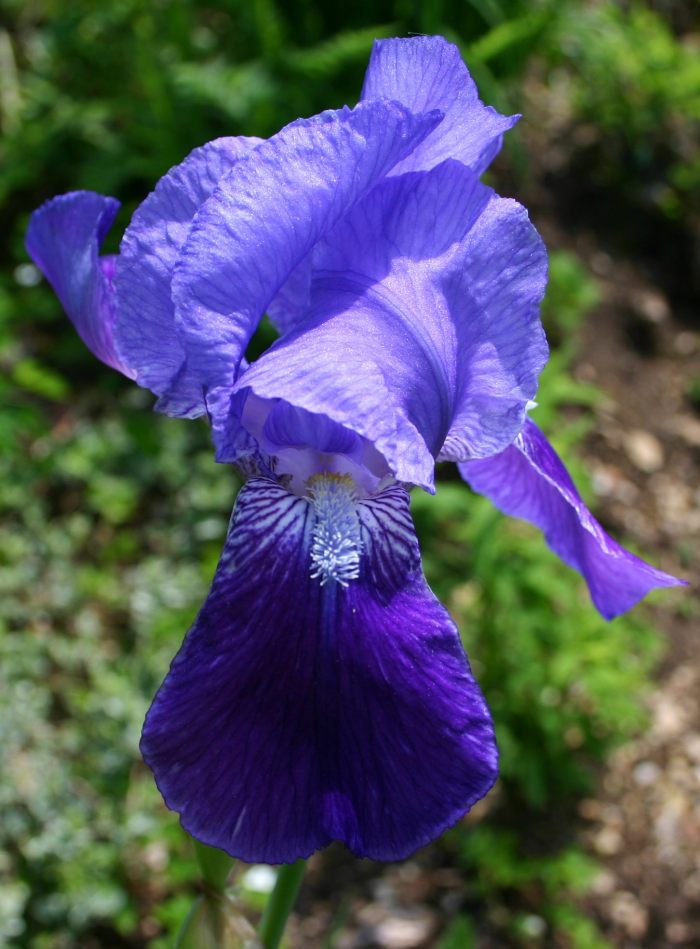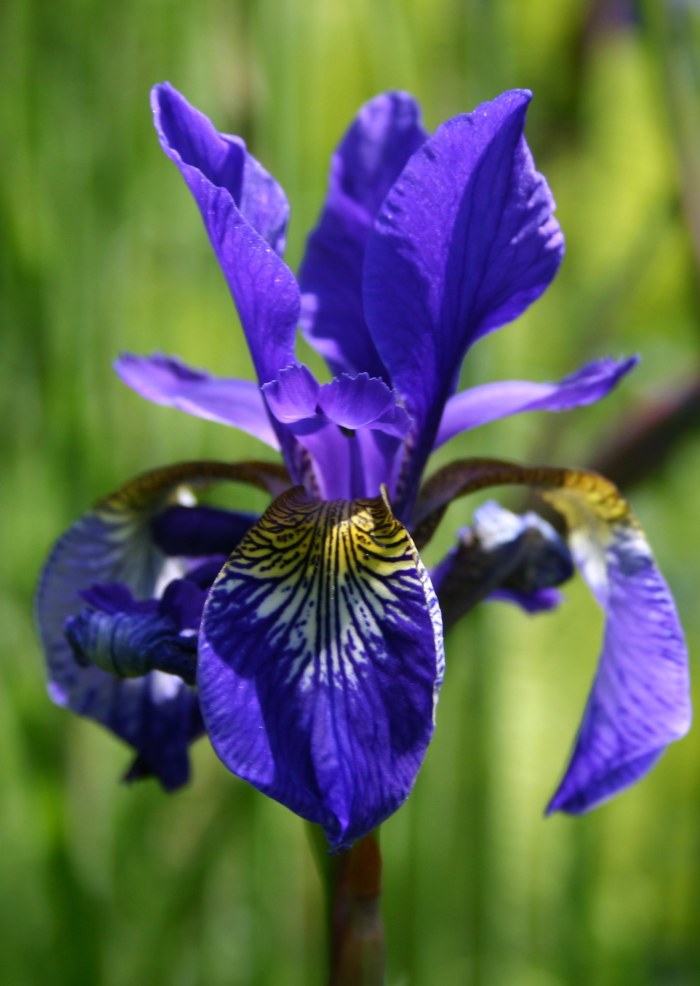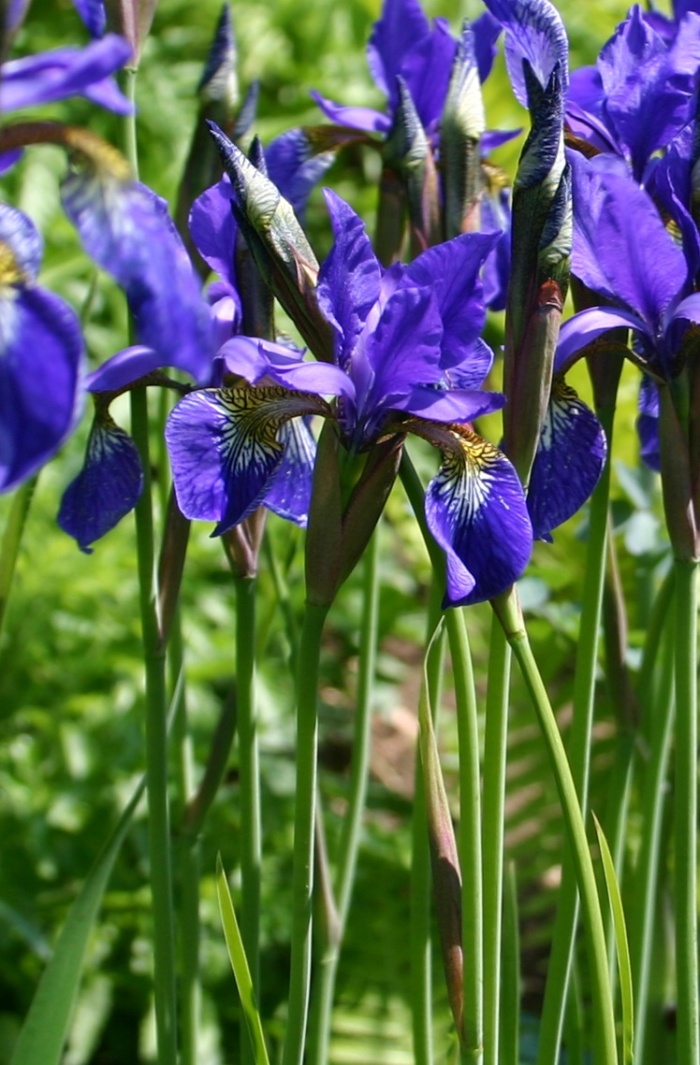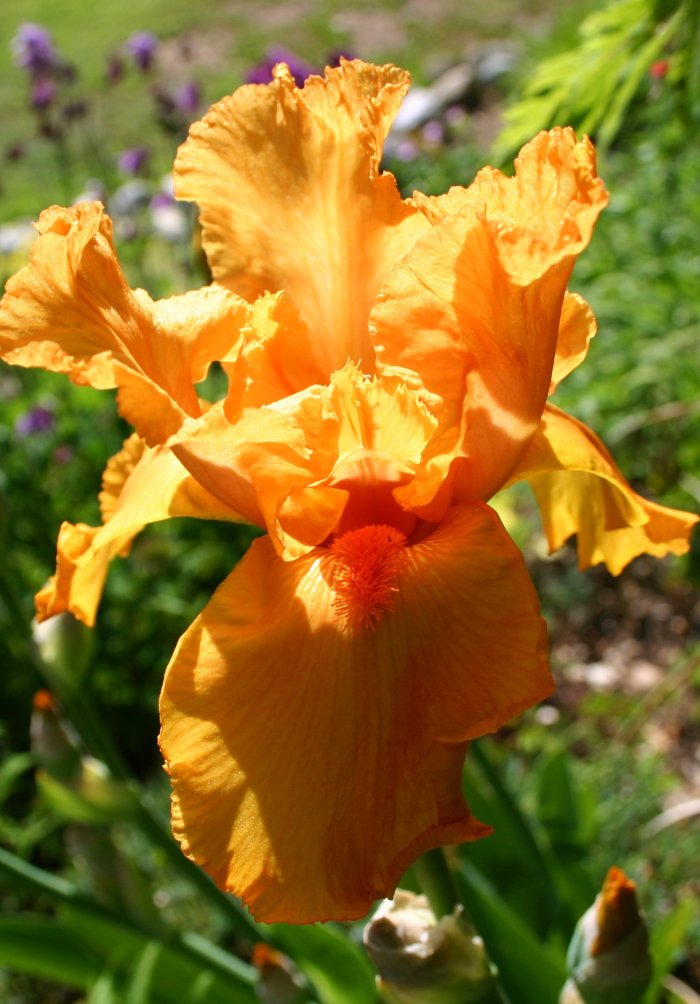WORD OF THE DAY:
rhubarb [ˈruːbɑːb]
Rhubarb: noun
- a plant which has long green and red edible stalks, usually eaten sweetened and cooked
- US and Canadian slang a heated discussion or quarrel
- the noise made by actors to simulate conversation, esp by repeating the word rhubarb at random (also a verb)
Is it a vegetable or a fruit?

Well, celery stalks are a vegetable, so in my eyes rhubarb is too!
However, Wikipedia writes that in 1947 the US declared rhubarb to be a fruit! As a result it was categorized as a fruit for import purposes – very lucrative for the business, as tariffs were lower for fruits than vegetables! (Someone must have had interests in a rhubarb farm abroad! LOL!)
The garden variety used for cooking is Rheum x hybridum. The leaves are toxic, containing oxalic acid, but the stalks have been used as an ingredient in fruit pies ever since sugar became readily available… without other sweet fruits or added sugar the stalks are so sour that they are barely edible! Sweeter young stalks are now sold in early spring as they are grown in hothouses.
Garden rhubarb can also be “forced” by raising the temperature – usually with an upturned bucket over the new shoots, or with a more sophisticated pot made especially for the purpose. In parts of northern England rhubarb is cultivated outdoors and then in the winter moved into sheds which are heated. The resulting shoots which sprout in the dark are tender, sweeter and paler than normal rhubarb. (See this article on the Rhubarb Triangle)
I’ll be posting a recipe for rhubarb tomorrow, so if you don’t have any in the garden, go and buy some! 😉

I remember watching an ancient film with Eric Sykes in it called “Rhubarb, Rhubarb”. The only word uttered in the whole 30-minute film was “rhubarb”! Five minutes of it is funny, but half an hour gets a bit tedious, even though the cast was excellent (with Jimmy Edwards, Beryl Reid, Roy Kinnear, Charlie Drake…).
Sadly there doesn’t seem to be a YouTube clip of it anywhere…
… There is however another famous rhubarb:
“Roobarb”
Roobarb is a disagreeable green dog who is full of silly ideas, and his neighbour – Custard – is a pink cat who takes great pleasure in laughing at Roobarb’s mishaps! Does anyone remember this cartoon?
Click on the picture of Roobarb to see the cartoon intro!














